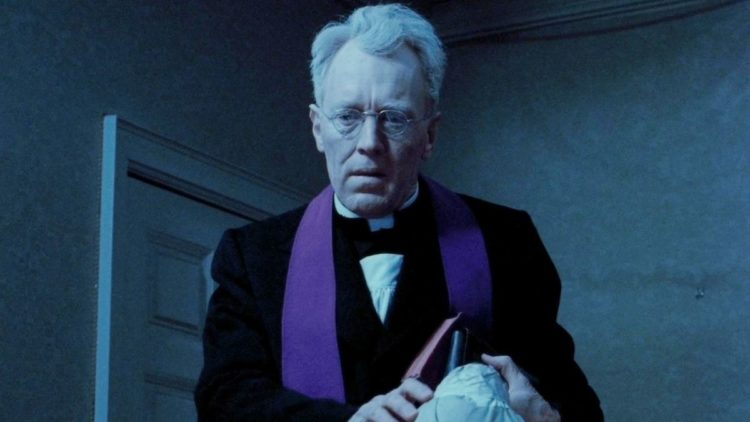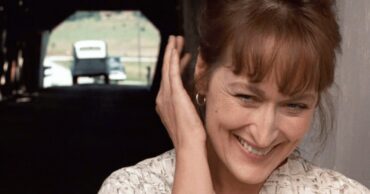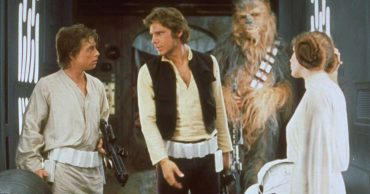
Max von Sydow has died at the age of 90. A unique figure who bridged both the arthouse and Hollywood, he was a uniting, towering presence in world cinema. Able to speak and act in several languages, including Swedish, English, Norwegian, Danish, French, Italian and Spanish, he burst onto the scene during his collaborations with Swedish auteur Ingmar Bergman before becoming the go-to foreign actor to lend gravitas to Hollywood films.
Once considered the greatest living actor, his death represents a massive loss for world cinema. With a career that spanned from Only a Mother in 1949 to the upcoming Echoes of the Past, his seventy-year shift is one of the most accomplished in the world. A humble yet dedicated actor, he could move between tragedy and comedy, heroism and villainy at the drop of the hat, his range knowing no dramatic or geographical bounds. To celebrate his career, we have compiled a list of five films that we think are essential to understanding his unique career trajectory.
Spanning from quintessential Swedish arthouse to American horror to New York tragicomedy to a uniquely told French film, there is no one who has had quite as diverse a career as the esteemed actor. Whether you are new to his work and don’t know where to start, or are looking for additional entries to better explore his legacy, read on now to feel inspired! Think that we missed something essential? Sound off in the comments below.
The Seventh Seal
One could’ve picked several of Max von Sydow’s collaborations with Ingmar Bergman, which represent some of the finest humanist cinema ever committed to screen. He is equally great in Hour of the Wolf, Shame, Wild Strawberries and Winter Light. Nonetheless, there is no film that quite encapsulates the uniqueness of this collaboration like The Seventh Seal, which established the Swedish auteur as one of the most unique voices on the world stage.
Max von Sydow plays a medieval knight during the Black Death who comes into contact with a mysterious hooded figure who invites him to play a game of chess. The very personification of Death itself, losing the game means giving up one’s mortality. Sydow’s knight believes that he can survive just as long as the game is playing, resulting in an allegorical portrait of man’s universal condition.
The Exorcist
The Exorcist needed a priest that would lend fighting a demon the necessary gravitas the film deserved. William Friedkin found that in spades with Max von Sydow, who embodies a severe Catholic ready and willing to do the difficult dance with the devil. As critics pointed out at the time, his casting seemed almost inevitable; wrestling with God and the meaning of life constantly in the films of Bergman, his transplant to an American horror covering similar territory seemed like a no-brainer.
One of the most iconic horror movies of all time, especially for the severity of the demonic possessions at its centre, The Exorcist’s success was highly dependent upon the brilliance of this performance, which makes us really believe in the terrors of what is happening. It wasn’t his first time in America – that would go to his role of Jesus Christ in 1965’s The Greatest Story Ever Told – but it is perhaps his most iconic.
Hannah and Her Sisters
Max von Sydow has a small role in Hannah and Her Sisters, as an older man in a relationship with Barbara Hershey’s much younger Lee, but his presence holds a large sway over Woody Allen’s large-scale character-juggling narrative. It is particularly memorable for his morose monologue where he explains why he doesn’t want to be around people, before launching into a discussion of a TV show about Auschwitz, asking why these kinds of things don’t happen more often.
Later, he discusses the entire problem with television, lambasting complacent American culture in the process and his belief that if Jesus returned to earth he would “never stop throwing up”. It shows that despite his dour reputation, he was a much funnier actor than people give him credit for, his disdain for human life in this monologue as darkly humorous as it is deeply negative. It would be hard for any other actor to balance the two so well.
The Diving Bell and the Butterfly
Max von Sydow was established on the world stage through his starring roles, but it is in his small supporting moments that his true greatness as an actor really shines through. This is especially true in the French-language film The Diving Bell and the Butterfly, which tells the story of a man (Mathieu Amalric) who was once a fashionable magazine editor before suffering locked-in syndrome. In a couple of brief scenes Sydow plays his irascible father.
In one he relents to being shaved by him as an invalid, before later returning to his son in the opposite position, his concern for his son’s condition portrayed with stunning grief. This is a man with one of the great faces of cinema, able to portray total suffering through facial gestures alone. Yet even in a career filled with great moments, his quietly devastating turn here is possibly his best.
Shutter Island
Max Von Sydow was often typecast as a Nazi or Nazi-adjacent. In The Quiller Memorandum he plays a chilling neo-Nazi residing in West Berlin. He also played the titular role in Hamsun, the biopic of the Nazi sympathiser and Norwegian author Knut Hamsun. This legacy was built upon brilliantly in Martin Scorsese’s neo-noir Shutter Island, where he played a sinister German doctor who may or may not have connections to The Third Reich.
Here he turns in a typically stellar performance, embodying his doctor with real sinister weight, helping to bolster the movie’s exploration of post-WW2 trauma. What makes these turns even more fascinating is that Sydow would often play Jewish characters, including famous Jews and holocaust survivors, making him one of the most important actors around when it comes to exploring the difficult legacy of anti-semitism.
 Follow Us
Follow Us




